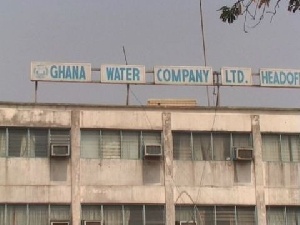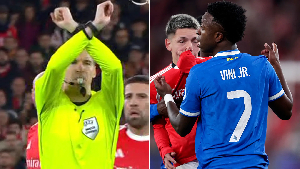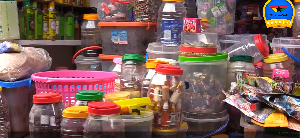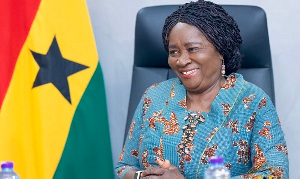The finances of the Ghana water Company are currently suffering as a result of negligence on the part of some of the company’s managers who failed to take measures to prevent the deterioration of strategic equipment.
Having superintended over the collapse of some of its stations, these senior figures persuaded the then NDC government to consider desalination as an option.
Following their advice, a contract was signed between the GWCL and Messrs Befessa Ltd, the contractors and operators of the Teshie-Nungua desalination plant.
Messrs Befesa Ltd was contracted to build the desalination plant, operate to defray its cost and hand over to the GWCL after 25years. Currently GWCL, on a monthly basis, pays a whopping $ 2million to the company, a payment which will continue for the next 25 years.
There are fears that the company will soon be rendered bankrupt as it also spends an average GHC 1.2million on electricity bills to power the plant which is powering half its expected capacity.
Consumers are bearing the brunt of the contract signed by powerful and politically well-connected personalities and management members who allegedly reap huge sums of monies from these monthly payments to the company.
Meanwhile, information reaching this paper indicates that some chief managers and other top shots of GWCL are already mounting pressure on some personalities and leading members of the Nana Akufo-Addo’s government to secure appointment as MD.
There are already calls for thorough investigations into their roles in all these contracts that are causing the company to bleed.
Readers will recall that as a reaction to poor service quality and low efficiency of the urban water utility, the World Bank supported the process of private sector participation in the water sector to improve its performance and rehabilitate and extend the infrastructure. Therefore, after careful considerations, a 5-year management contract was awarded to Aqua Vitens Rand Limited from 2006 -2011 under the previous NPP administration.
Angered by the decision taken by the then NPP government, some bigwigs within the company vowed to sabotage the efforts of the AVRL and ensure that the company would not be able to reach or meet expectations and terms enshrined in its management contract.
Some chief managers right from the inception of AVRL were not supportive of the move simply because the management contract was taken away from them.
The band of saboteurs pushed for the abrogation of the AVRL contract, even though the company asked for an extension to fine-tune and complete some projects that were ongoing.
Management staff in their quest to embarrass the NPP administration and frustrate AVRL, continually condemned the performance of the private company and asked for a review of their contract even at a time they were few months old in the country and their performance could not easily be assessed.
Following a change of government in 2008, the chief managers mobilized the Ghana Workers union against AVRL with the aim of embarrassing the company and putting the NPP in a bad light.
Having succeeded with their ‘agenda kick out AVRL’, these same chief managers pressed for the formation of the Ghana Urban Water Limited to take over the management and operations of all the 81 Urban Water Systems in the country.
Interestingly, after the exit of the private companies some funding which was allocated to the company for the procurement of equipment were not utilized, but management for reasons best known to them left the monies untouched until the period allotted expired and was returned to chest.
Meanwhile, few years down the line, government explained that the company had to be merged with GWCL “to eliminate waste, expand the supply of safe water in urban areas and ensure that the poor have access to water supply, while ensuring sustainability through cost recovery and improved sector management”
The company supervised the near-collapse of the water sector in the country. Constant breakdown of equipment regularly interrupted water supply to various parts of the country. There were recorded instances where chief engineers supervised the procurement of wrong equipment which do not match the company’s system and are left to rot in warehouses since there is no use for them. This situation, workers say, amounts to causing financial loss to the state.
Few months after the merger, Communications Manager of Ghana Water Company Limited, Stanley Martey, confessed that the utility company had not broken even in a very long time.
According to him, his outfit’s failure to break even was what had accounted for its inability to maintain a sustainable tariff regime and the reason for the frequent increases in water tariffs.
Under GUWL, residents in many parts of Accra and Tema continually had to live with a water rationing exercise undertaken by the company, following periodic detection of structural defect in the filters at the Weija Treatment Plant. The company reportedly spent a whooping €950,000 on the repair of faulty filters on the company’s Weija Adam Clark Plant, after it spent some €600,000 for similar repairs of other filtres in March 2013. Concerns were raised at the rate at which the filters breakdown and the amount of money the company annually paid to a foreign company, Messer’s Ballast Nedam to have them repaired.
This paper can state categorically state that the US$273million Kpong water treatment plant expansion recently done to deliver about 40 million gallons of water per day to communities in Adenta, Madina, Kwabenya, North and East Legon and its environs is not living up to expectation as it is unable to pump water to required homes because of the unavailability of adequate distribution lines.
The plant is producing half its capacity. It is worthy to note that due to continuous variations introduced in already signed internationally funded contracts, most projects are left uncompleted and this situation leaves huge financial burdens on the company’s operational funds.
Business News of Thursday, 26 January 2017
Source: The New Statesman













